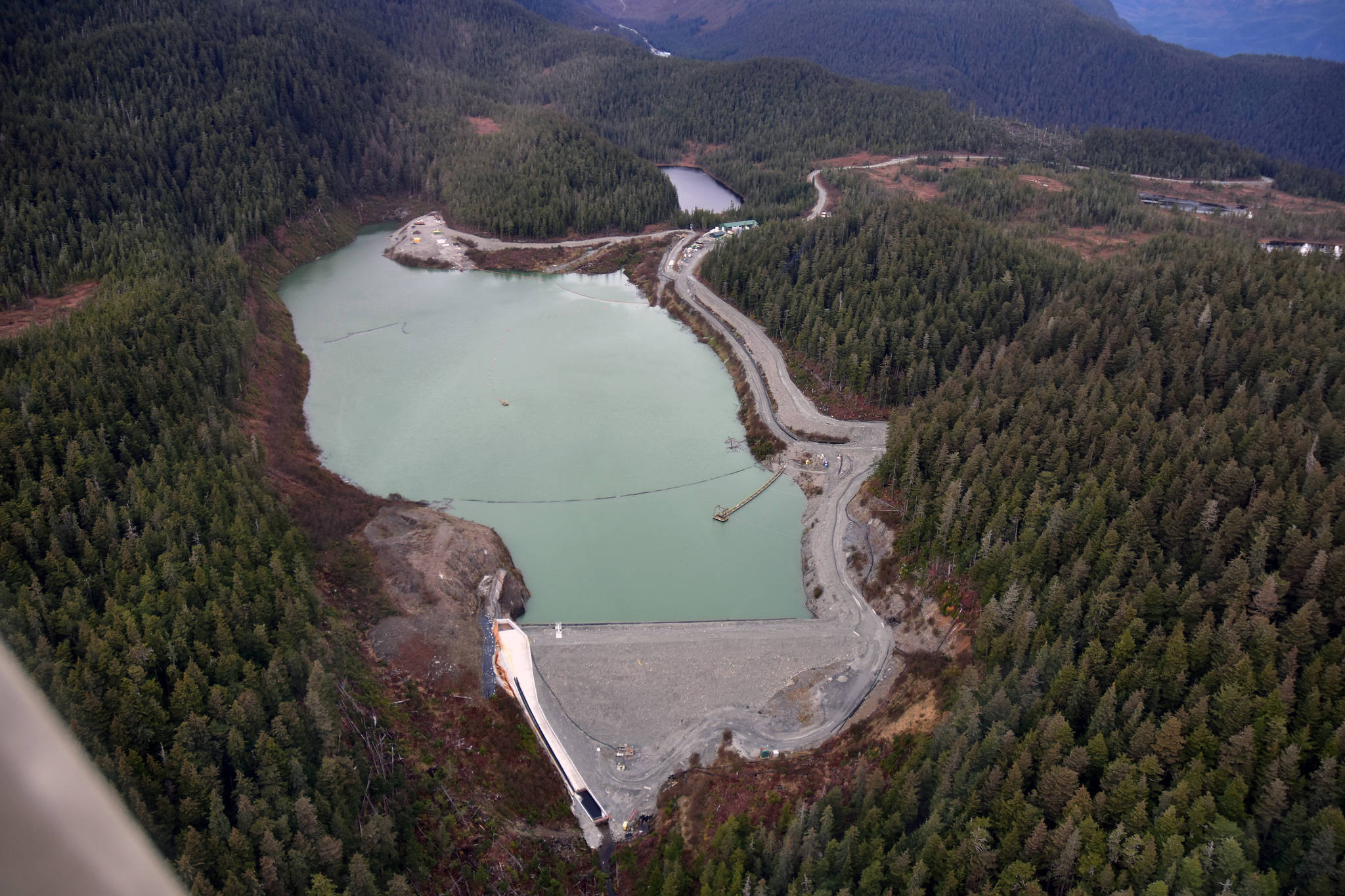Coeur Alaska is seeking an expansion to the Kensington Gold Mine north of Berners Bay, and when it does, the company hopes to improve its own environmental standard, said Mark Kiessling, the mine’s general manager at this week’s Greater Juneau Chamber of Commerce luncheon.
“Kensington has a strong environmental focus,” Kiessling said Thursday at the Chamber’s meeting. “Our projects are designed and constructed to take into consideration the sensitive natural environment.”
Kensington has operated since 2010 and can currently operate until 2023, but Coeur would like to see it operate for at least another 10 years. In order to do that, they’ll have to expand storage facilities for waste material from the mining process. The company submitted last year its plan to expand facilities for both waste rock and water and the U.S. Forest Service, which oversees the process, recently released its draft supplemental environmental impact statement that is currently open for public comment.
[Digging into Kensington Gold Mine]
It’s the wastewater that causes the most concern among environmentalists. In 2005, Juneau-based Southeast Alaska Conservation Council were party to a lawsuit against the company arguing its permits issued by the Army Corps of Engineers violated the Clean Water Act. That case ultimately ended in Coeur’s favor in a decision by the U.S. Supreme Court.
At issue are tailings, or the wastewater that comes from processing rock material during mining. Wastewater at Kensington is collected and sent to a water treatment plant before being deposited in a lake known as a Tailings Treatment Facility.
Part of Coeur’s expansions outlined in its plan includes raising the dam on the tailings facility to increase the size of the lake. There is a water treatment plant onsite next to the lake that continually treats the water in the lake. Eventually, Coeur says, tailings minerals in the water will settle at the bottom of the lake, and the water body will be able to function as a fish habitat.
Expansion of the tailings facility was one of the largest concerns heard during an earlier public comment session on the expansion, the Forest Service said in its DSEIS.
”Expansion of tailings and waste rock areas, increased production of tailings, construction, and the consequences of dam failure due to increased water and tailings behind the dam may adversely affect aquatic resources; specifically, water quality, fish habitat, streams, wetlands, and other Waters of the United States from Sherman, Slate, and Johnson creeks to Slate Creek Cove and Berners Bay,” the DSEIS says.
But Coeur is committed to protecting the environment, Kiessling said, and under the company’s plan, the lake will become an enhanced fish habitat by connecting the tailings lake with a nearby lake. The water treatment plant would remain present until both the Forest Service and Alaska Department of Environmental Conservation agree that treatment is no longer required the DSEIS says.
Coeur submitted their preferred plan, but there are alternatives presented by the Forest Service in the DSEIS. Some of those alternatives are more disruptive than Coeur’s own plan, Kiessling said, and the company’s plan had been designed with an enhanced fish habitat in mind.
[Public gets a look at Kensington mine expansion]
Kensington employs approximately 400 people, Kiessling said, about 60% of whom are Alaska residents, and of that 35-45% are residents of Southeast Alaska. The company paid out over $55 million in wages and benefits in 2019, Kiessling said and spent about $15.8 million with local vendors.
Coeur would look to local contractors for any work that needs to be done, but without knowing which alternative the company would be pursuing it was difficult to say in what area. Expanding the height of the dam would require earth-moving work the company would look to local contractors for, Kiessling said.
The public comment period for the DSEIS began Oct. 30 and ends Dec. 14, according to the Forest Service. Public comments submitted during this period will be considered and responded to in the Final Environmental Impact Statement and used to help finalize the Draft Decision, the Forest Service project website says.
How to comment
Information on the project, including the DSEIS and past documents on the project can be found at the Forest Service project website: fs.usda.gov/project/?project=55533. Public comments can also be submitted to the project website.
Email: sm.fs.kensington@usda.gov
Fax: 907-586-8808
Mail: 8510 Mendenhall Loop Rd, Juneau AK 99801; attention Kensington Mine Plan Amendment.
Additioanl information
Project manager with the U.S. Forest Service Matthew Reece can be reached at 789-6274, or matthew.a.reece@usda.gov.
Coeur has their own project website at kensingtonseis.com, and questions can be sent to Jan Trigg at jtrigg@coeur.com or 523-3325.

